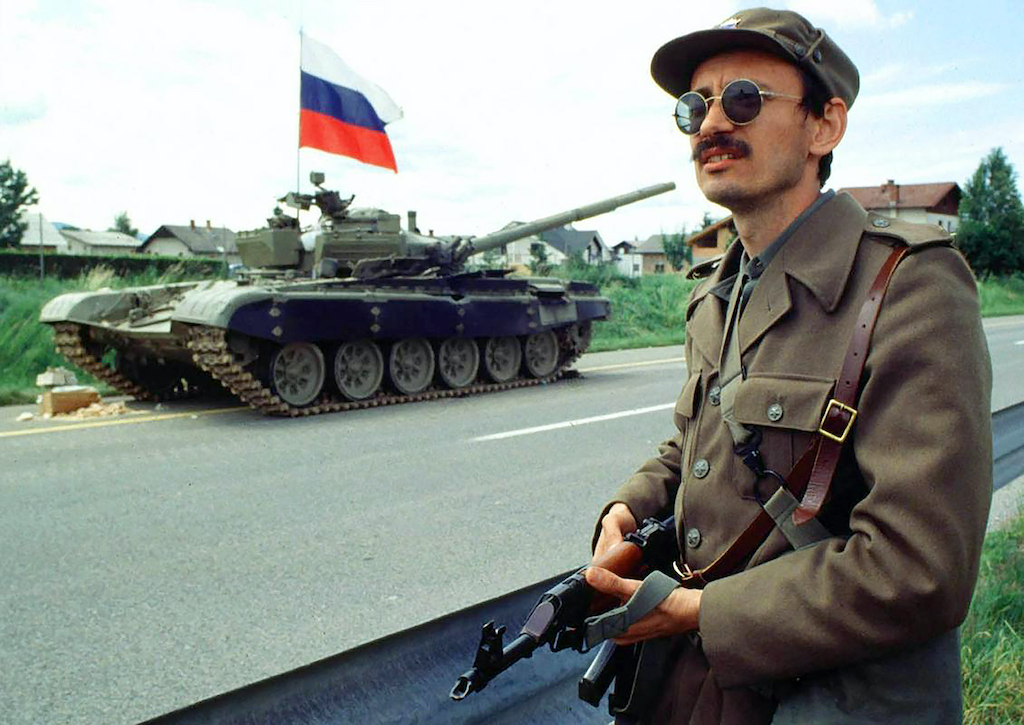By: Andreja Valič Zver
In professional literature and school textbooks, we often come across mythical stories about the unity of the Slovenian nation, and especially about the merits of the left political elite in the process of Slovenian democratization and independence.
The celebration of the 30th anniversary of the independent and sovereign state of the Republic of Slovenia is the right time to look back at those crucial times and call a spade a spade, taking into account the available historical sources and literature. Let us put the topics such as the »communists leaving power« who did not really intend to do so, »high treason« or the disarmament of the Slovenian territorial defence in May 1990 (!), various stumbling blocks and a media stampede against actual independence steps, aside. Today I will focus on the issue of actual and »operetta« independence, which was on the minds of many individuals whose intimate option was not Slovenian independence.
Political differences after the plebiscite
Prior to the December 1990 plebiscite, Demos and the opposition temporarily cooperated. Mixed crews toured various places in Slovenia and promoted independent Slovenia. After an excellent plebiscite result (88.5 percent support from all eligible voters), political tensions escalated again. At its core, was the question of whether independence should be real, that is, actual with all the prerogatives of the state, including its own armed forces, or only apparent, that is, »operetta«. The Demos government took the commitment from the plebiscite seriously, and the left-wing political forces played the card of Slovenia’s formal independence, but in fact things would mostly remain the same as before. These two different positions came to the fore when the necessary legislation had to be passed in the then Republican Assembly. Key decisions were made in March and April 1991 solely by the votes of Demos MPs. These were, in particular, the Budget Act – the defence part, the Defence Act and the Military Service Act. Prominent members of the opposition were strongly opposed to this at the time, also publicly.
The collaborations of the old and new elites?
These historical facts must be taken into account, not only when looking for the merits of Slovenian independence, but also when we want to show what was really happening at that time. Many argue that in Slovenia, there was a kind of pact, a cooperation between the old and new elites in the transition to democracy and independence. But was it really so?
Of course, the picture is not black and white. The first reforms, which indirectly affected the independence process, were carried out by the old nomenclature under pressure from the new political public and international circumstances (e.g. the constitutional changes in September and the first change in electoral legislation at the end of 1989). After taking power in the first democratic elections, however, all reforms were accepted and implemented by the Demos government. Apart from a few exceptions, there was no agreed method of democratic transition in Slovenia.
The idea of an independent state was maturing
Historical sources show that the idea of an independent Slovenian state lived most in the diaspora after WW2, as it was violently suppressed at home, but in the 1980s it settled in the public consciousness of the vast majority of the nation. With the famous 57th issue of the Nova revija journal, we received a new Slovenian national program in 1987, which later became an integral part of the program of the emerging democratic opposition and one of Demos’ key political priorities, together with the May Declaration (Majniška deklaracija). The old elite, with its counter-platform – the Basic Charter (Temeljna listina) – remained within the framework of (democratic) socialism and the Yugoslav community. They behaved in this manner exactly 30 years ago, when the Demos government was frantically preparing for the physical protection of independence measures.
The international situation and independence
Although key international players were not in favour of Slovenia’s independence aspirations, the international situation had an indirect positive effect on them. Mikhail Gorbachev and George W. Bush declared the end of the Cold War, Solidarity won in Poland, the Berlin Wall fell, the Soviets withdrew their armed forces from Eastern Europe, and finally communism and the Soviet empire fell. It was a unique historical time when controlled borders, changed. And by the grace of God, we Slovenians were part of this (temporary) process.
In any case, the independence project was not imported, planned or carried out with the help of foreign countries. In all this, the Slovenians were more or less out on a limb, and it was difficult for us to gain important international allies. But slowly the door opened abroad as well. Also, Slovenians around the world and abroad have helped us many times.
The victory in the war for Slovenia against the aggressor that was the Yugoslav People’s Army was crucial for actual independence. Slovenia entered the world political map as an independent and sovereign state, and was soon recognized by all. The dreams of many generations have come true, but only because we had the right people in the right places, people who took advantage of a unique historical moment and prevented the “operetta” independence planned by the left.
Historian dr. Andreja Valič Zver was the director of the Study Center for National Reconciliation from 2008 to 2020. She is the president of the council of the Institute Dr. Jože Pučnik.

